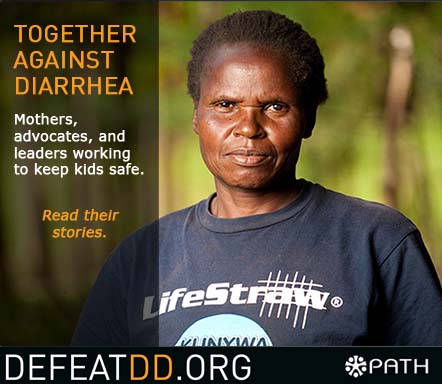How stories can defeat deadly diarrhea
|

“Hello? Are we together?” That's the first sentence of our new story series, “Together against diarrhea.” We borrowed it from our colleague, Alfred.
Whenever Alfred breaks from a moving story or a passionate argument with this affable refrain, it's meant to be rhetorical, like when someone ends a sentence with, “You know what I mean?” Implicitly, the answer is yes, but we don't have to say it. Of course, we know; of course, we are together. To me, it is a subtle reminder that what makes us tick as human beings is the same no matter where we're from, and one of those universal truths is that our hearts respond more to stories than they do to facts and figures.
Stories remind us that we're all in this together.
At the recent Social Good Summit, which focused the ways social media and technology can help make the world a better place, New York Times columnist Nick Kristof used science to explain the warm fuzzies we get whenever we donate to charity, do volunteer work, or otherwise take action for a cause we care about: These activities increase oxytocin levels in our brains, the hormone associated with… well, warm fuzzies. It's almost as if this is nature's way of telling us that we are designed to help one another.
I'm lucky to have met most of the people featured in our new story series. In Kenya, I shared many meals and laughs with Alfred. In Zambia, I held Teresa's youngest son, Vusi, just after he received the rotavirus vaccine that will protect him from the most fatal form of childhood diarrhea.
Whether you realize it or not, you know these people, too. You know mothers like Jane who offer advice and encouragement. You see a younger version of yourself - or maybe children of your own - in the boundless energy of Zambian schoolkids freestyling outside the school house.
That's what I love about our new story series: it reminds us of our common humanity and our common responsibility to one another. And it provides a simple, yet powerful way to make a difference: by sharing these stories with others.
So if you're thinking you're a little low on oxytocin levels these days, do yourself - and the world - a favor, and share the stories that move you. It's going to take a global village to create a world where no child dies from diarrhea. Will you lend your voice?














